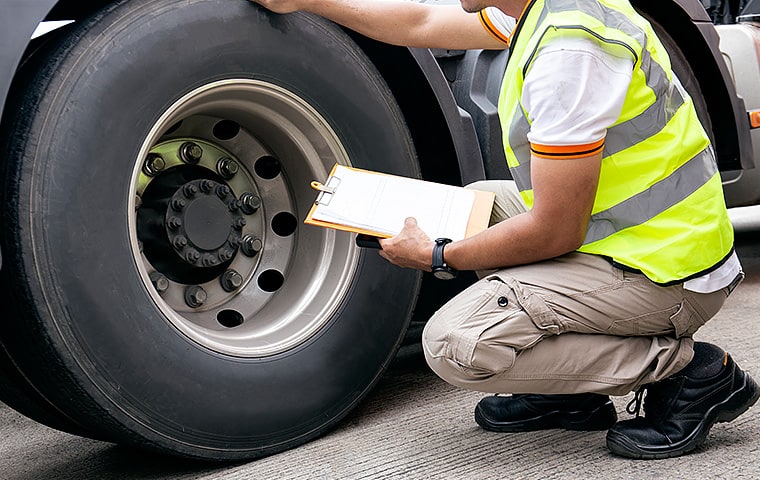Introduction
One of the most dreaded calls for fleet managers is when one of their drivers reports that they need help somewhere far away by the roadside. The cause could be a mechanical breakdown, a flat tire, a dead battery, a medical emergency, or even a fuel outage.
Roadside emergencies can be costly because these issues need instant attention by fleet managers. Delivering immediate roadside help to facilitate a smooth resumption of business calls for sound management systems and partnerships with reliable roadside assistance services. These are essential services, especially where fleets cover geographically diverse areas, because they help drivers handle common problems encountered on the road.
Common Roadside Issues and How to Solve Them as a Fleet Manager
Drivers may encounter several problems on the road. We’ll highlight the most common, along with their quickest possible solutions.
Mechanical Breakdowns
Mechanical breakdowns are inevitable for fleet owners. They often occur mostly as a result of minor problems that escalate into more significant issues when left unattended. As a fleet manager, maintenance data is crucial when contacting mechanics about the issue at hand.
Locating maintenance records can be difficult without a proper data management system. That is one area fleet owners and managers may need to focus their attention. Adopting a fleet management dashboard can help in terms of retrieving the required information quickly.
For quicker access to data, vehicles and drivers can be tagged with labels.
Tire Bursts and Punctures
Tire-related issues account for more than half of all roadside breakdowns in the US. Of this, 85 percent of tire failures are as a result of slow tire punctures, while 15 percent are caused by sudden damages. The cost of roadside repairs, and especially tire repairs, is usually higher than routine maintenance. This leads to increased upkeep costs and consequently ramps up business operation costs.
The best solution for enterprise fleet managers is to integrate run-flat tire technology into their fleet management system to get instant alerts whenever tire issues develop. Once the technology has been implemented, drivers are directed to the closest repair shops in advance.
Fuel Outage
Running out of fuel on the road was once a common experience for fleet drivers. Current regulations require drivers to inspect vehicles for fuel before embarking on a journey, which has cut back on this problem. However, matters to do with spillage, fuel theft, and adulteration can still cause fuel outages on the road.
Carrying extra fuel cans in a truck is dangerous, and against the law. Fleet managers can install smart monitoring devices on their vehicles to track fuel levels while vehicles are in transit. Once fuel drops to certain levels, the driver is alerted to refuel the vehicle. In case the system fails, to avoid unnecessary downtime roadside help can be requested from providers who operate round the clock.
Lockouts
Lockouts can be embarrassing, and unfortunately, they account for a considerable number of roadside issues. Locking the keys inside a vehicle while the engine is running leads to fuel loss and other serious ramifications for the fleet company, including revenue losses.
Fleet managers should take advantage of GPS fleet tracking technology to receive real-time alerts in the event of a lockout, but getting someone to deliver a spare key takes a lot of time, depending on the distance. A magnetic key case can be installed somewhere underneath the vehicle to aid drivers to get back on the road faster after a lockout.
Further, telematics-integrated apps offered by established roadside assistance providers, can help drivers gain instant access.
Mistakes Every Fleet Manager Should Avoid for Smooth Roadside Help
Breakdowns are almost inevitable, even where comprehensive preventive maintenance programs have been put in place. You will experience a faulty tire or a mechanical breakdown that needs quick attention at some point.
Breakdowns can lead to massive losses in revenue and even damage customer relations. Yet, not all fleet companies manage breakdown processes well. Highlighted below are some common mistakes to avoid regarding emergency roadside service.
Failing to Maintain Trucks Properly
Breakdowns cannot be avoided when they happen, but some things can be done to minimize their frequency. Fleets need to ensure pre-trip inspections and routine maintenance tasks are done well. Where proper inspections and maintenance are carried out, there are fewer cases of roadside breakdowns.
Waiting Until Breakdown to Find a Service Provider
The moment a breakdown happens, having a quick solution is critical. A fleet company must have a workable solution on hand in time for that to happen. It is important to know what each vendor offers and narrow down your list to only those with good quality service.
Another option is to contract with a roadside assistance company that will be available to help whenever and wherever a problem may occur. If you have such a relationship already in place, assistance can be rendered quickly without having to call around to several vendors to see who is available.
Withholding Important Information
The worst mistake a fleet manager can make is to give inaccurate information to service providers. For the best handling of roadside issues, providers should provide the maintenance history of the vehicle, including reports of previous pre-trip inspections. Ensure that they receive all the information they need to hasten the repair process and to get the vehicle back on the road as soon as possible.
Looking at Price at the Expense of Value
The cost of maintenance should never be the top priority when dealing with a roadside issue. Besides considering how much it is going to cost, focus on the totality of the service. Value for money is important when looking for roadside assistance. To guarantee high-quality service, this takes you back to the importance of knowing who to call when the need arises.
Conclusion
Preventative fleet maintenance reduces the risk of roadside breakdowns, but since it is impossible to predict when one of your fleet vehicles will experience an issue, preparedness is vital. Have your list of roadside assistance providers ready for as long as your vehicles are on the road. You’ll need a responsive partner to deliver fuel, handle mechanical breakdowns, tow your vehicle if needed, and handle other needs that require an emergency response.








